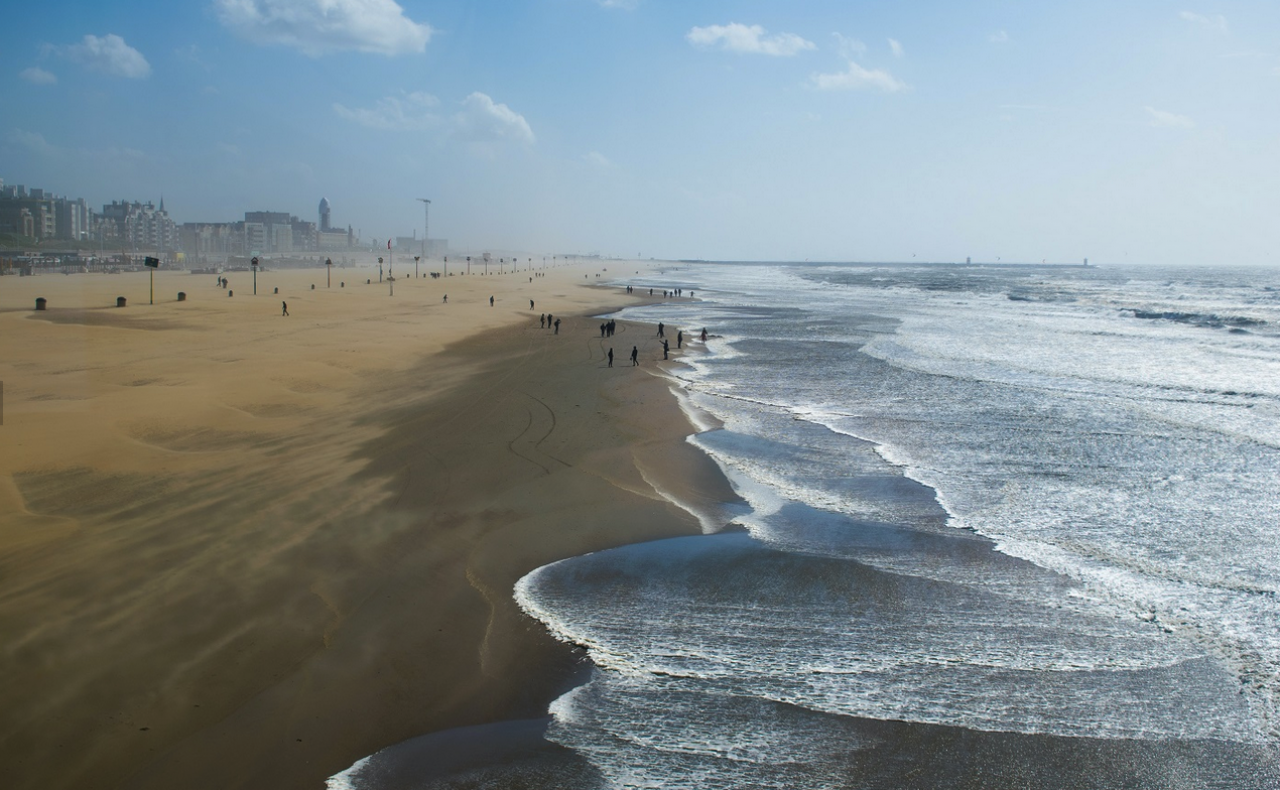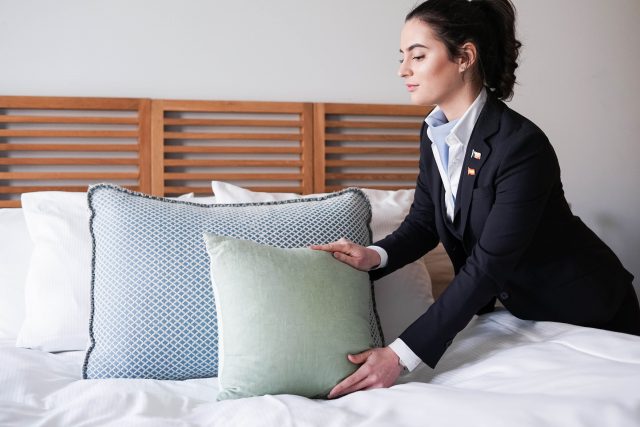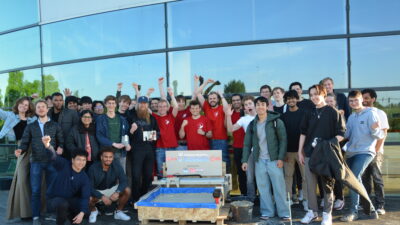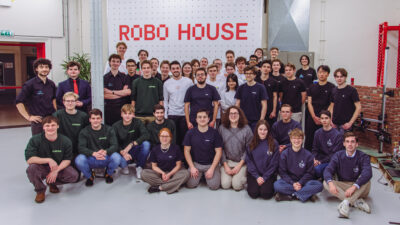From spring 2022 onwards, guests as well as hotel employees can take part in experiments with robots, performed by Hotelschool The Hague, TU Delft and Robohouse.
Robots are already being used in several hotels. There are robots to deliver meals to guests, to vacuum hotel rooms, to welcome guests and to prepare meals.
But there is also doubt about the benefits of robotics. “It is often unclear what is gained by implementing these types of robots”, says Klaas Koerten, robotics researcher at Hotelschool The Hague. “Robots are often used as a gimmick, to draw attention.”
Our initiative arose from enthusiasm about the potential of robotics. Jeroen Oskam, director of the Research Centre of the Hotelschool The Hague
A serious solution for current challenges
In both the engineering world as well as the hospitality industry, however, people feel that robots can offer real solutions to current challenges, but only if the technology is there to serve the guests and employees. Because of this, Hotelschool The Hague, the TU Delft and Robohouse will join hands to research the application of robotics in hospitality together.
Letting robots contribute to better jobs
“Our initiative arose from enthusiasm about the potential of robotics, but also from frustration with its unsophisticated use in hospitality”, says Jeroen Oskam, director of the Research Centre of the Hotelschool The Hague. “We need to start conducting our own research on robotics instead of just looking at what other people do, or we will fall behind.”
The hospitality industry is dealing with challenges like shortages in personnel, Covid restrictions and delivering constant quality. In June 2021, the Dutch Hospitality Institute (KHN) reported that since the start of the Covid crisis, over 90 000 hospitality employees have started working in a different sector.

How do guests experience contact with robots?
There is no shortage of personnel, but a shortage of good jobs.
Jaimy Siebel, managing director at Robohouse
“In hospitality, as in other industries, there is no shortage of personnel, but a shortage of good jobs”, says Jaimy Siebel, managing director at Robohouse. “If we can help to make jobs attractive, people will get enthusiastic about these jobs. It is our mission to let robotics contribute to better jobs.”
To improve the experience and working conditions in hotels and restaurants, the partners will conduct experiments in different aspects of the industry. They will look at the front-end, robots that interact with guests, as well as the back-end, robots interacting solely with employees, for example as a part of an intelligent refrigeration system.
David Abbink, professor human-robot interaction at TU Delft says: “The question will be: how do our guests and employees experience the cooperation with robots? And what kind of improvement does a robot bring, looking at quality and speed?”
Intelligent refrigerators and robotic waiters
For the experiments, the partners will collaborate with companies that are already developing robotics for in the workspace. Husky, a company producing intelligent refrigerators, and DALCO Robotics, who produce robotic waiters, have already expressed interest in a collaboration.
The question will be: how do our guests and employees experience the cooperation with robots? David Abbink, professor human-robot interaction at TU Delft
Experiments will take place at Skotel in Scheveningen. Skotel is a combination of a hotel and an education and research center, which makes it the perfect place to test how robots and people work together in a realistic hotel environment.
About Hotelschool The Hague
Hotelschool The Hague was founded and funded in 1929 by the hospitality industry to create a hub where industry partners could gain and share new insights, skills and knowledge. Since then, it has become a professional operation with a solid international reputation in hospitality management. Though Hotelschool The Hague has expanded considerably over the years, it has always remained true to its original mandate with a clear commitment to hospitality and a strong connection with the industry.

About RoboHouse
RoboHouse is a future of work fieldlab at the TU Delft Campus where development of robotics and research on social processes can happen simultaneously. We facilitate companies, researchers, students and start-ups to discover the possibilities of cognitive robotics, and to reach practical solutions together for a healthy, lively workplace.
About TU Delft
State of the art education and research are key at the oldest and largest technical university of the Netherlands. Our eight faculties host 16 bachelor and over 30 master programs. Our 25,000 students and 6,000 employees share a fascination for science, design and technology. Our common goal: impact for a better society.
If you would like to get in touch with the research of Hotelschool The Hague, TU Delft and Robohouse on robotics in hospitality, you can send an e-mail to k.koerten@hotelschool.nl



